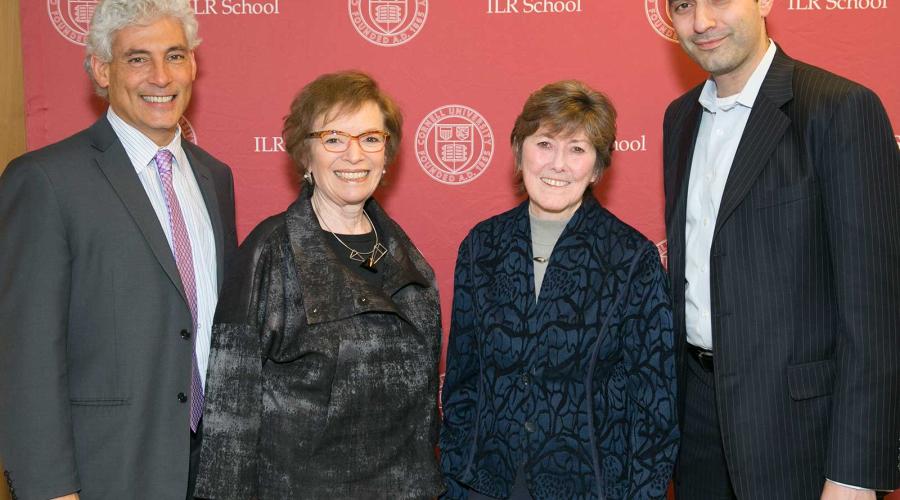
Private Equity at Work – Discussion and Book Signing
Technological advances on a historic scale are rapidly changing the U.S. economy and labor market, changing both how work gets done and who receives what return for their labor and financial capital. Private Equity at Work: When Wall Street Manages Main Street, a new book by Professor Rosemary Batt, ICS Fellow and Alice Cook Professor of Women and Work in ILR's HR Studies Department, and co-author Eileen Applebaum, illuminates how private equity operates in this new economy.
On December 10, 2014, ILR alumni and special guests of the Institute for Compensation Studies and The Worker Institute gathered for a book-signing and discussion with the authors. Comments were provided by Joshua Cherry-Seto, ILR '97 and Chief Financial Officer at Blue Wolf Capital Partners LLC, and Steven Berkenfeld, ILR '81 and Managing Director in the Investment Banking Division of Barclays. ICS Executive Director Linda Barrington moderated the event.
The New York Review of Books calls Private Equity at Work an objective and "comprehensive examination of this shadowy sector." The review concludes by stating that the authors "belong to an economics tradition known as institutionalism, one that pays close attention to economic history, organizational forms, and changing political power; yet these authors also display mastery of a wide range of economic data. Like the workplace, today's economics profession is fissured. Those who explore inequality by emphasizing education and technology, while paying no attention to the drastically altered social contract that is now becoming dominant, are missing much of the story." [www.nybooks.com/articles/archives/2014/oct/23/why-work-more-and-more-debased/]
Lively conversation at the ILR event addressed not only issues related to the changing social contract in the U.S. but how publicly held companies may be looking to the private equity "playbook" for new practices to adopt.
Applebaum and Batt tell us that "It is time to end the fiction that private equity firms and investment funds they sponsor are simply financial firms that passively invest in businesses and to address the reality that they are employers that actively manage the companies they acquire." Between 2000 and 2012, private invested over $3.4 trillion in about 18,300 leveraged buyouts of companies employing roughly 7.5 million people. That is slightly more workers than are currently members of U.S. unions. Private equity is certainly a player of note in considering advancing the world of work today.
The event was supported in part by the Technology and Employment Sustainability Initiative of the Institute for Compensation Studies.
Find the book Private Equity at Work: When Wall Street Manages Main Street
Read the full ILR News story.
